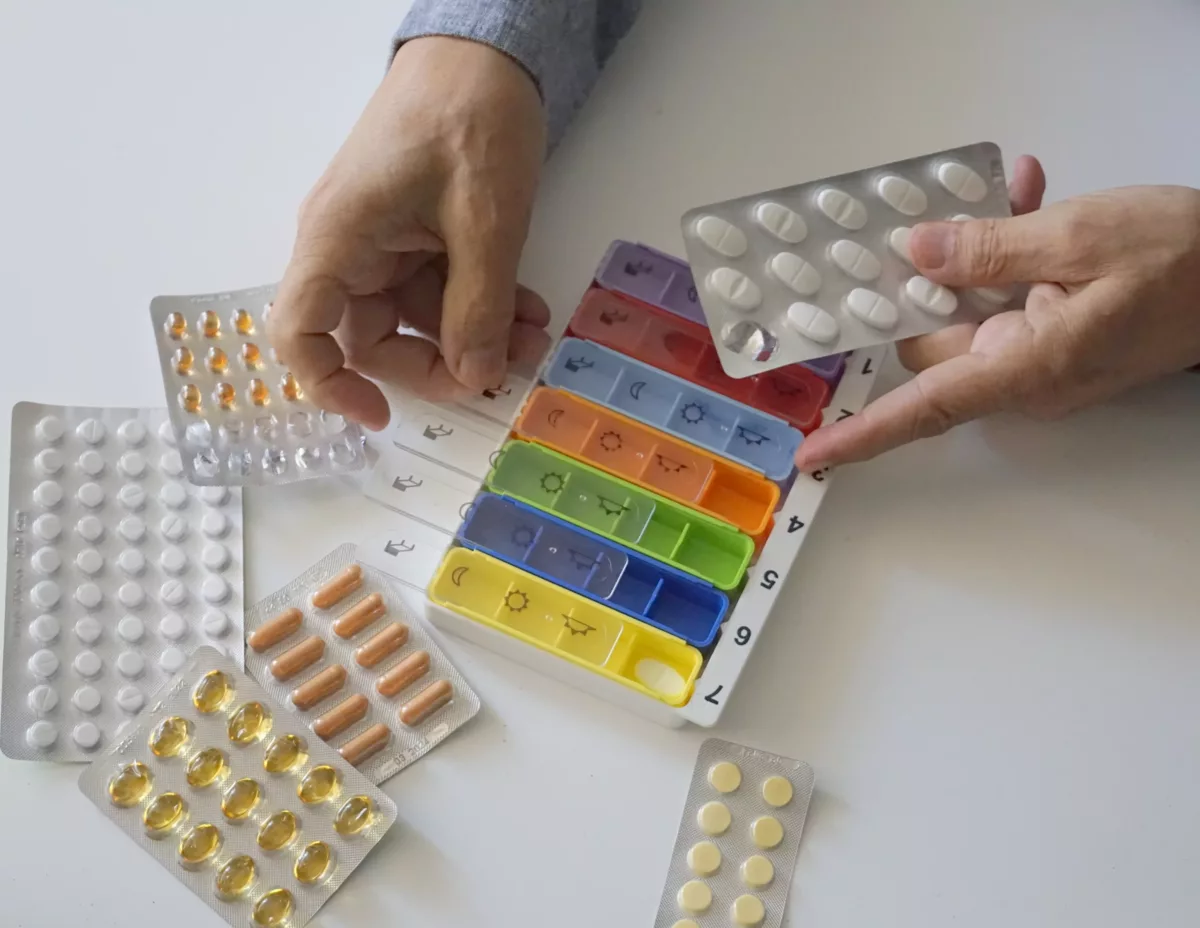A health problem that causes dizziness, vertigo, lightheadedness, or makes you feel unsteady is called a balance problem. People who experience it may feel that the room is spinning. It happens whether you are sitting, standing, or lying down.
To maintain a normal balance, multiple body systems are involved. For example, muscles, bones, joints, eyes, balance organs in the inner ear, nerves, heart, and blood vessels. All these systems and organs should work properly to ensure normal balance.
Furthermore, a lot of health conditions may also cause balance problems. In most cases, people experience balance problems due to problems with the balance organ in the inner ear (vestibular system).
Symptoms
Commonly, people with balance problems experience the following symptoms. Examples include:
- Vertigo (a feeling of motion or spinning)
- Loss of balance or unsteadiness
- Presyncope (a feeling of faintness or lightheadedness)
- Falling or feeling like you may fall
- Floating sensations
- Dizziness
- Confusion
- Vision problems (such as double or blurred vision)
Do not hesitate to visit a doctor if any of the previous symptoms occur.
Causes
There are a lot of health conditions that may cause balance problems. Check below for some examples:
Vertigo
This is often associated with multiple conditions. These include:
- BPPV (benign paroxysmal positional vertigo) – This is a condition in which Calcium crystals form in the inner ear that helps control the body’s balance. However, this condition is the most common cause of vertigo in adults.
- Vestibular neuritis – It is an inflammatory disorder caused by a virus that negatively affects the nerves in the inner ear that help control balance. The most common symptoms include difficulty walking and nausea.
- Persistent postural-perceptual dizziness – This condition frequently happens along with other types of vertigo and causes the following symptoms. For example, unsteadiness or a sensation of motion. Previous symptoms may worsen when you watch moving objects or read.
- Meniere’s disease – This condition is not fully understood, and it occurs quite rarely. It mostly affects people between 20 to 40 years. It causes fluctuating hearing loss, tinnitus, and other symptoms along with sudden and severe vertigo.
- Migraine – This condition may cause dizziness and sensitivity to motion (also called vestibular migraine). Furthermore, migraine is one of the most common causes of dizziness.
- Acoustic neuroma – This is a benign (noncancerous) tumor that appears on the nerve and negatively affects hearing and balance. While it occurs rarely, people with acoustic neuroma may experience hearing loss and tinnitus (ringing in the ears).
- Ramsay Hunt Syndrome – Sometimes, this condition is called herpes zoster oticus. It often occurs when a shingles-like infection negatively affects facial, vestibular, and auditory nerves. Those who experience Ramsay Hunt syndrome usually experience the following symptoms. For example, vertigo, ear pain, facial weakness, and hearing loss (sometimes).
- Head injury – Vertigo may also occur due to head injuries.
- Motion sickness – This condition occurs frequently in boats, cars, and airplanes. It may also happen in those who have migraines.
Lightheadedness or Feeling of Faintness
- Postural hypotension (also called hemodynamic orthostatic hypotension) – Some people may experience a sudden drop in blood pressure when standing or sitting up too fast.
- Cardiovascular disease – The following conditions are often associated with lightheadedness. For example, narrowed or blocked blood vessels, hypertrophic cardiomyopathy (a thickened heart muscle), and arrhythmia (irregular heart rhythm).
Unsteadiness or Loss of Balance
Check below for some problems that may cause problems with balance while walking:
- Problems with the vestibular system – If you have problems with the organs in the inner ear, it may lead to a feeling of floating or a heavy head.
- Peripheral neuropathy (damage to the nerves of the legs) – Damage to these nerves may cause walking problems.
- Joint, muscle, or vision issues – Loss of balance may also occur due to muscle weakness, joint problems, or vision changes.
- Certain medicines – There are some medicines that may cause unsteadiness or loss of balance as an adverse reaction.
- Neurological diseases – People who experience cervical spondylosis and Parkinson’s disease may also develop problems with balance.
Dizziness
The following health conditions are often associated with dizziness. Examples include:
- Psychiatric disorders – Dizziness frequently occurs in people with depression (also called major depressive disorder), anxiety, and other mental health problems.
- Hyperventilation – This is a condition in which breathing becomes abnormally fast. As a result, people with hyperventilation may experience anxiety disorders that cause lightheadedness or dizziness.
- Some medicines – Specific medicines may cause lightheadedness as a negative effect.
Diagnosis
To diagnose this condition, physicians will evaluate your medical history and may ask some questions about your symptoms. They may also perform a physical and neurological examination to check for abnormalities linked with this condition. Below are some tests used to confirm the condition and determine the exact cause of balance problems:
- Hearing tests – These tests are used to check for hearing problems linked with the condition.
- A posturography test is used to determine which part of the balance system you rely on most.
- Videonystagmography and electronystagmography – These tests record eye movements that play an important role in vestibular function.
- Rotary chair test – This test is also used to analyze eye movements.
- Dix-Hallpike maneuver – During this procedure, doctors will turn your head in different positions to check eye movement.
- Vestibular evoked myogenic potentials test – It involves sensor pads that are attached to your neck and forehead to measure changes that happen during muscle contraction.
- Imaging tests – These tests are used to get detailed images of multiple body structures and organs. Physicians usually perform an MRI (magnetic resonance imaging) scan or a CT (computerized tomography) scan.
- Blood pressure and heart rate tests – In such cases, testing your blood pressure when sitting and after standing may help identify the exact cause of balance problems.
Treatment
The goal of the treatment is to treat the underlying condition and improve the symptoms. Moreover, treatment for balance problems is different among people because it depends on the severity of the condition, your age, existing health problems, and other factors. Check below for some treatments often recommended by doctors for people with balance problems:
- Vestibular rehabilitation (also known as balance retaining exercises) – During this treatment, specialized therapists trained in balance problems will teach you certain exercises that may help improve balance.
- Positioning procedures – This treatment is often recommended for people with BPPV.
- Dietary and lifestyle changes – In most cases, doctors recommend dietary and lifestyle changes for people with Meniere’s disease and migraines. It involves avoiding dietary triggers such as caffeine and alcohol.
- Medicines – Doctors may prescribe some medicines if you experience severe vertigo.
- Surgery – Healthcare professionals usually recommend this treatment when other therapies or medicines do not work.
Frequently Asked Questions
Why do I feel unbalanced when I walk?
There are multiple causes of balance problems. Some of them include neurological disorders, vision changes (such as double or blurred vision), adverse reactions to certain medicines, inner ear abnormalities, and others. However, this article does not contain all possible causes of balance problems. Visit a doctor if you experience any of the balance problem symptoms.
What are the common medical conditions that may cause balance issues?
Usually, people develop balance problems due to Meniere’s disease, benign paroxysmal positional vertigo (BPPV), and vestibular neuronitis. If you suspect you have any of the previous conditions, immediately contact your healthcare provider.
What are the effects of balance problems?
People who develop problems with balance may experience some complications. These include:
- Impaired mobility
- Falls and injuries
- Mental disorders (such as depression, anxiety, and others)
- Difficulty performing daily activities
- Vision problems
- Reduced quality of life
Ask your healthcare provider if you have any other questions.




